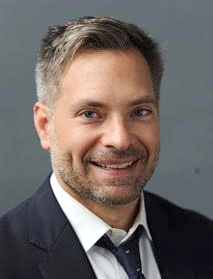The year is 2014. Deep in the bowels of the Internet Research Agency in St. Petersburg, Russia, two young analysts – Boris and Natalia – hatch a long-term strategy to interfere with American elections, communications and society.
“Natalia! I’ve got it. It’s all about the cell phone. And voice mail. And prank calls!
“What do you mean, Boris? What are you talking about?”
“American people already are hooked on text messaging instead of the actual telephone call. Our comrades work hard to disrupt their lives on social media. Why don’t we attack their use of the telephone function on their cell phones?”
“What do you have in mind?”
“Look, we can create profiles of salespeople to phone Americans with spam calls! Spam calls for services they hate discussing – health care! life insurance! College loans!”
“Yeah. Ok. But they will just hang up. Who cares Boris?”
“Yes! That’s the whole point. The Americans will hang up. They will despise phone calls. They will avoid answering their phones. They will let calls go to voice mail. They will mistake legitimate callers for spam callers! They will avoid speaking to one another. Remember that book we read in Misinformation 101 class? “Bowling Alone” by Robert Putnam from Harvard? Well, we can further that isolation in America. We can cause Americans to be wary of communication!”
“Boris! I think you are on to something.”
“Yes! Right?”
“So how do we make this happen?”
“The tech guys will handle the VPN networks, the false company set ups, the Internet-enabled auto-dialing massive sets of phone numbers in random, rotating batches. They can set it up for calls to roll in from hilarious, random destinations and area codes such as Riverhead, New York; Santa Rosa, California; Bayonne, New Jersey; and Centertown, Kentucky.”
“O.K. So what role do you and I play in these efforts?”
“We need to come up with the names of companies, the scripts, names and voices of the callers. This will be the fun part!”
“OK. So, like, ‘Jane’ from Bayonne, NJ? Calling for CIGNA Blue Cross?”
“Yes! That’s brilliant. What will she say?”
“How about: “If you can afford, we make it hassle-free to sign up with policies from Cigna, Blue Cross, Aetna, United and many more. Press 1 now to get a hassle-free assessment. Or press 2 to be placed on our do not call list. And, as always, be happy and blessed.”
“Yes! Perfect Natalia. But, wait a second, why should she say, ‘Press 2 to be placed on our do not call list?”
“Easy. I observed the do not call list idea when I was an exchange student in Iowa. Americans believe they can take themselves off of email lists or robocall phone lists. So this feature will give them a false sense of hope! They think they won’t receive more spam calls. But they will receive many more! From Jane in Bayonne. It is the worst form of phone torture. Americans will be so disheartened and disgusted, they will let their voicemail boxes pile up with these ridiculous spam messages. Some of them won’t even be able to have voice mail arrive. Their boxes will become so clogged.”
“You are a sick woman, Natalia. But I like it. I like it very much!”
“My closing line about ‘be happy and blessed’ will be like salt in their relational wounds. Americans like to be nice and kind to others. So this remark with insincere kindness will make them angry, jaded and more cynical.”
“Let’s walk these downstairs to Igor. If he gives us the green light we can sketch out a more complete strategy map, run a SWOT analysis, establish some deliverables and get the project underway. Do you want create a PowerPoint deck if he greenlights this quickly and needs us to present to the directorate at Friday’s meeting?”
“Hell yes! I have to use my Wharton skills somehow, Natalia. I’m a PowerPoint wizard. Do you think this might win the Agency-wide Sergei Brin award for most innovative misinformation idea of the year?”
“Um. Boris. I think this is the best idea anyone has had since malware and bot accounts for Twitter. I think we will win the prize easily.”
“What’s the prize this year?”
“Season tickets to the Bolshoi!”
Paul Glader is an associate professor of journalism at The King’s College in New York City.



